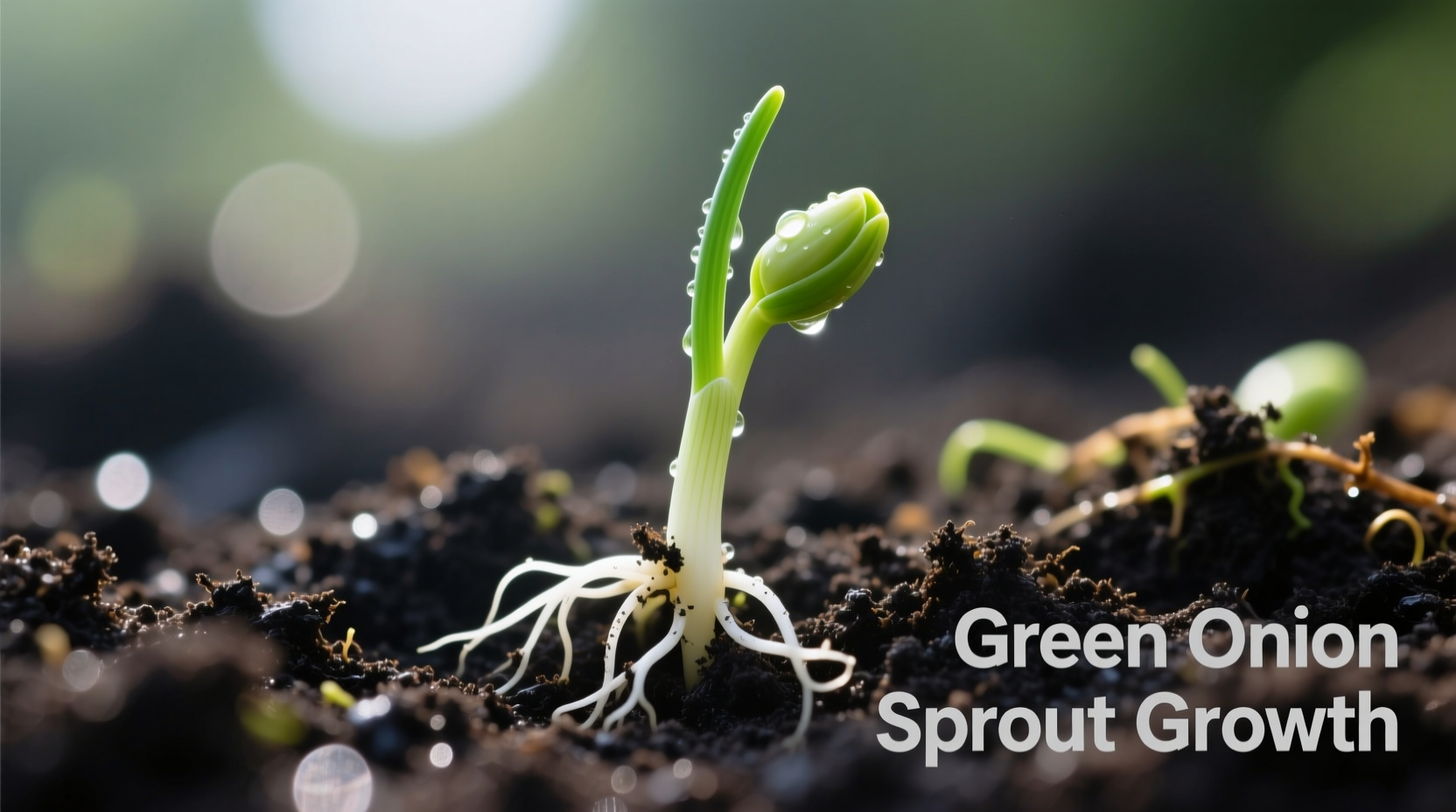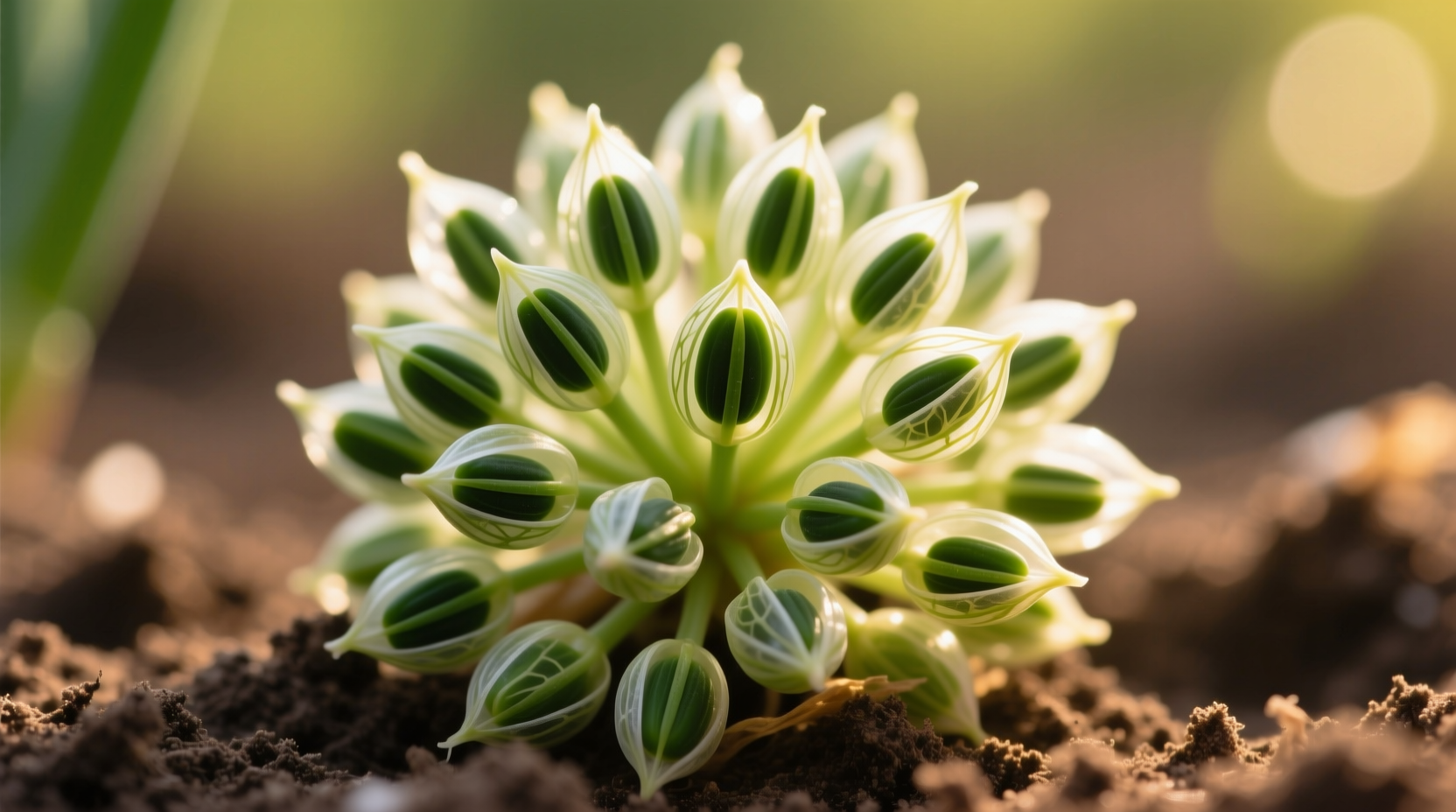Understanding Green Onion Varieties and Seed Characteristics
Green onions, also called scallions or bunching onions, originate from the Allium fistulosum species, distinct from common bulb onions (Allium cepa). This botanical difference explains their unique growth pattern where the bulb remains underdeveloped while the green stalks continue growing.
| Characteristic | Green Onion Seeds | Regular Onion Seeds |
|---|---|---|
| Botanical Name | Allium fistulosum | Allium cepa |
| Maturity Time | 60-80 days | 100-170 days |
| Bulb Development | Minimal (slight swelling) | Full bulb formation |
| Cold Requirement | None (grow year-round) | Requires vernalization |
| Harvest Method | Cut-and-come-again | Single harvest |
This comparison comes from the University of Minnesota Extension Service, which confirms that green onions don't require the cold period needed by bulb onions to form their characteristic swollen bases. This makes them ideal for continuous harvesting in home gardens.
Optimal Planting Conditions for Success
Successful green onion cultivation begins with proper planting conditions. These hardy plants tolerate temperatures as low as 20°F (-7°C) but grow best between 60-75°F (15-24°C). Unlike bulb onions, they don't require specific day-length conditions, making them suitable for planting throughout the growing season.
Prepare your garden bed with these specific requirements:
- Soil pH: 6.0-7.5 (slightly acidic to neutral)
- Soil Composition: Well-draining loam with 2-3 inches of compost worked in
- Seed Depth: 1/4 inch (6mm) - never deeper
- Spacing: 1 inch apart in rows 12-18 inches apart
- Water Needs: Consistent moisture (1 inch per week)
For container growing, use pots at least 6 inches deep with drainage holes. Fill with quality potting mix and maintain consistent moisture levels, as container plants dry out faster than garden beds.

Growth Timeline and Maintenance Requirements
Understanding the growth stages helps optimize care for maximum yield. Green onions follow this predictable development pattern:
- Days 1-7: Germination phase - keep soil consistently moist
- Days 8-21: Seedling establishment - thin to 2 inches apart when 2 inches tall
- Days 22-45: Rapid stalk growth - maintain even moisture
- Days 46-60: First harvest window - cut 1 inch above soil line
- Days 61-80: Regrowth phase - subsequent harvests every 20-30 days
This timeline comes from research by the University of Wisconsin-Madison Department of Horticulture, which notes that green onions regrow from the same root system when harvested properly, allowing multiple harvests from a single planting.
Troubleshooting Common Growing Problems
Even experienced gardeners encounter challenges with green onions. Here are solutions to frequent issues:
Yellowing Leaves
Cause: Nitrogen deficiency or overwatering
Solution: Apply balanced organic fertilizer (10-10-10) and check soil drainage. The Oregon State University Extension recommends adding blood meal at 1/4 cup per 10 square feet for nitrogen boost.
Thin, Weak Stalks
Cause: Overcrowding or insufficient light
Solution: Thin plants to proper spacing and ensure 6+ hours of direct sunlight daily. Rotate container plants to prevent leaning toward light sources.
Pest Management
Common pests include thrips and onion maggots. Prevent infestations with these methods:
- Use floating row covers immediately after planting
- Rotate planting locations annually
- Mix 1 tablespoon neem oil with 1 quart water for natural pest control
- Plant companion flowers like marigolds to deter pests
Harvesting Techniques for Maximum Yield
Proper harvesting ensures continuous production throughout the growing season. Follow these professional techniques:
First Harvest: When stalks reach 6-8 inches tall and pencil thickness, cut 1 inch above soil line using sharp scissors. Never pull plants from the ground.
Subsequent Harvests: Allow regrowth to 4-6 inches before next harvest. Typically yields 3-4 harvests per planting before replanting.
Full Plant Harvest: For kitchen use, dig entire plants when bulbs reach 1/2 inch diameter. Leave some plants to flower for seed collection.
The USDA's National Agricultural Library confirms that proper harvesting technique extends the productive life of green onion plants by preventing damage to the root system.
Seed Saving for Future Planting
Preserve your harvest by saving seeds from mature plants:
- Allow a few plants to bolt and flower (typically in second year)
- Monitor seed heads as they turn brown (usually late summer)
- Cut seed heads when 75% brown but before pods shatter
- Dry seed heads in paper bag for 2 weeks in cool, dark place
- Thresh seeds by rubbing pods between palms
- Store in airtight container in refrigerator (viable for 1-2 years)
Seed saving maintains genetic diversity in your garden. The Seed Savers Exchange recommends labeling saved seeds with variety name and harvest date for best results.
Common Questions About Green Onion Seeds
Here are answers to frequently asked questions from gardeners:
Can I grow green onions from store-bought scallions?
Yes, you can regrow green onions from store-bought scallions by placing the white root end in water. Change water every 2-3 days and transplant to soil when roots reach 1 inch. However, for true seed production, you'll need to grow plants to maturity and collect seeds from the flower heads.
How deep should green onion seeds be planted?
Plant green onion seeds 1/4 inch deep (6mm) in well-prepared soil. Planting too deep prevents germination, while too shallow allows seeds to dry out. Maintain consistent moisture until seedlings emerge.
Why aren't my green onion seeds germinating?
Poor germination typically occurs due to improper soil temperature (below 40°F/4°C), inconsistent moisture, or old seeds. Green onion seeds remain viable for 1-2 years when stored properly. Test seed viability by placing 10 seeds on a damp paper towel in a warm location for 7 days.
Can green onions grow in partial shade?
Green onions tolerate partial shade but produce best with 6+ hours of direct sunlight daily. In shaded conditions, expect slower growth and thinner stalks. For container gardening, rotate pots regularly to ensure even light exposure on all sides.











 浙公网安备
33010002000092号
浙公网安备
33010002000092号 浙B2-20120091-4
浙B2-20120091-4